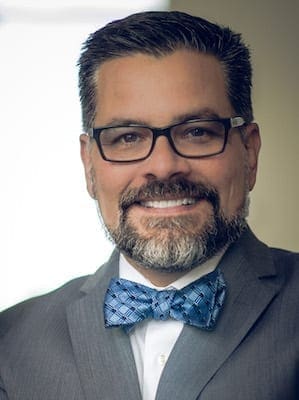It seems poetic that Earth Day arrived one day behind Easter Sunday.
After a week when Jesus talked about stones crying out, forthcoming earthquakes, experiencing the darkness of Good Friday, and the earth shaking that split the curtain in the Holy of Holies, Easter is filled with reminders that humans live in a created environment filled with life.
New York Times’ science writer, Ferris Jabr, recently published a column titled “The Earth is Just as Alive as You Are.”
Based on the Gaia hypothesis, the theory “proposes that all organisms and their inorganic surroundings on Earth are closely integrated to form a single and self-regulating complex system, maintaining the conditions for life on the planet.”
The basis of this column is not to debate evidence to support or debunk this scientific theory, but to pose this theological question: “Because God created the earth, does not that act in itself infuse the earth with all the nuances of life granted by the Creator?”
And, before I get chastised that God only breathed life into humanity, remember God breathed the earth into existence using only words or breath (Genesis 1 and 2).
German theologian Jürgen Moltmann argues this point in his excellent work, “God in Creation.”
He reasons that because God created the earth through uttering words, then God’s Spirit lives within all creation.
In Moltmann’s words, “the Creator indwells the creatures he has made, animates them, holds them in life and leads them into the future of his kingdom.”
Therefore, if the world is a living creature possessing the very spirit of its creator, the earth and all of her inhabitants are living organisms cohabitating within a delicate symbiotic ecological environment.
If, and when, the earth is harmed through human negligence or irresponsibly in consuming her resources, it will react similarly to any other living creature.
Again, Moltmann: “Unless there is a radical reversal in the fundamental orientation of our human societies, and unless we succeed in finding an alternative way of living and dealing with other living things and with nature, this crisis is going to end in a wholesale catastrophe.”
He wrote those words in 1984. Over 30 years later, his warning is becoming prophetic and closer to reality as each day passes.
Scientists and climatologists say that we are losing the battle against climate change. Climate change has progressed so rapidly that there has already been irreversible damage to God’s creation.
Let me state this another way: Climate prophets have been preaching to the world that human sin continues to cause great pain and suffering to God’s created earth.
While the current generation either seems to deny the existence of climate change or symbolically acknowledges it without any real strategy, the millennial generation is taking the reins to demand policy reversals and the initiation of bold actions.
Because they will be the generation to inherit the sins of past generations, they are prophetically calling out their elders for their irresponsibility and negligence.
For example, Swedish teen Greta Thunberg began lobbying the Swedish Parliament and advocated for sweeping changes that would bring about tangible policies combating climate change.
Her advocacy became so popular that teens around the world joined her effort, staging a global school walkout that enlisted 1,700 towns and cities across 100 different countries.
The clock continues to tick as the older generation continues to play politics with the future health of the planet and places corporate profits over the health of future generations.
The time for an ecological revolution is upon us. There are too many weeds in the garden for the plants to grow.
This brings me back to Holy Week. When Jesus first appeared to Mary Magdalene on resurrection morning, she mistook him for a gardener.
I think there was a reason she mistook him: On resurrection morning, Jesus had assumed the full embodiment of God’s creation.
With the shadows of the Garden of Eden lingering in the narrative, God’s Chosen One being mistaken for a gardener makes sense.
The resurrection brought new life to all of God’s creation.
God’s garden, the earth, was no longer subdued by human sin (Genesis 3). God’s creation was liberated to live as God intended.
Unfortunately, humanity has continued to thwart the Gardener and position itself as “owners” of the land. (Humans are not owners but caretakers.)
As a Jesus-follower, I want to encourage my fellow sojourners of faith to embrace a theology of creation-care that includes an ecological ethic, re-examine our behaviors that harm the earth, recommit ourselves to live responsibly, advocate for a healthy world for tomorrow’s generations and embrace the Gardener of resurrection morning.
In the Gardener, there is new life – and that is exactly what the world needs right now!
Editor’s note: A series published this week for Earth Day 2019 is available here.


